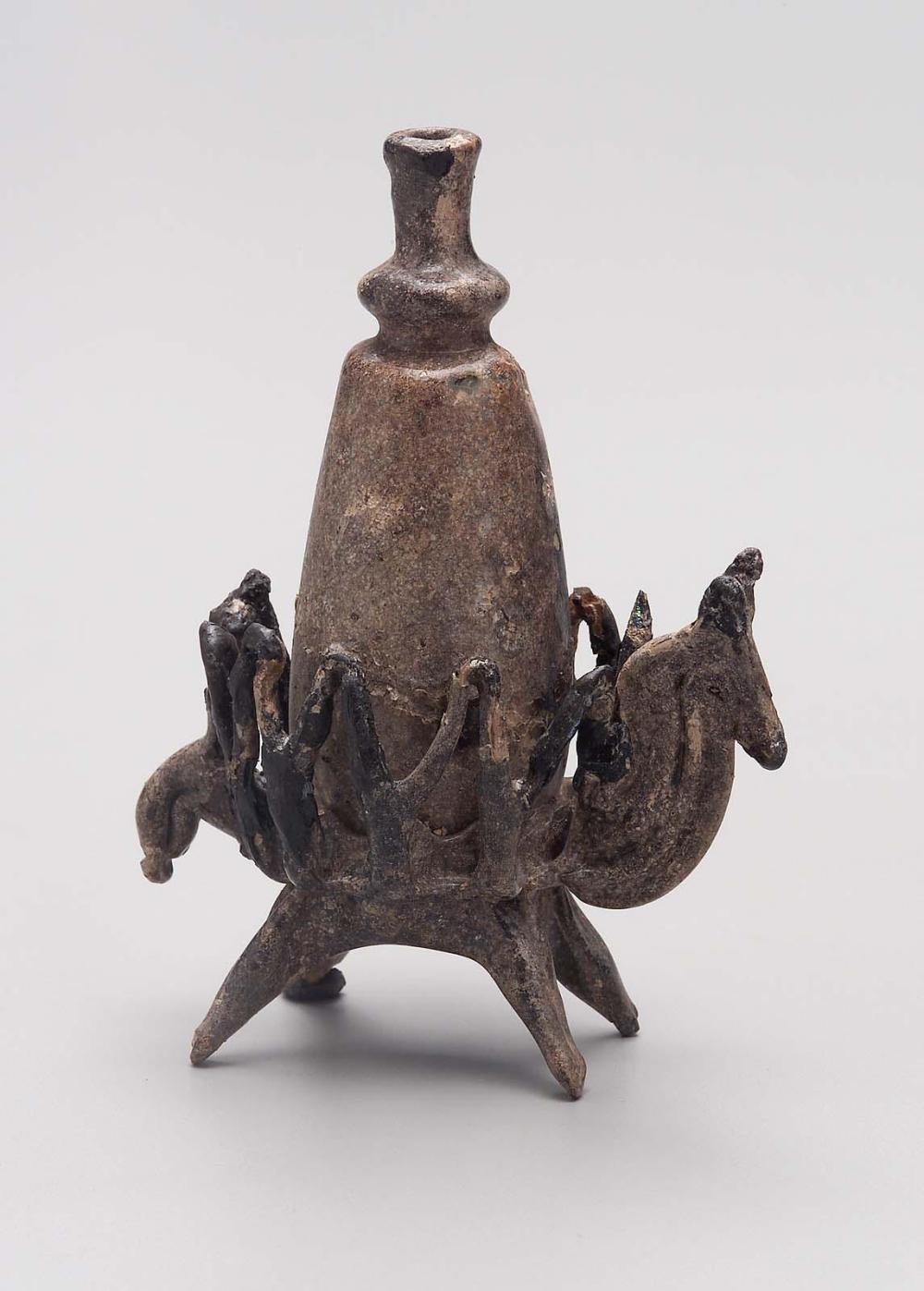Advanced Search
Flask in the shape of a four-legged animal
Perfurmed water flask in the shape of a four-legged animal
Flask in the shape of a four-legged animal
Byzantine or Islamic, Syrian
Early Byzantine or Umayyad Period
6th–8th century A.D.
Place of Manufacture: Eastern Mediterranean
Medium/Technique
Glass, free-blown and tooled with applied decoration
Dimensions
Height: 12.8 cm. (5 1/16 in.)
Credit Line
M. Elizabeth Carter Collection—Gift of Nellie Parney Carter
Accession Number29.967
CollectionsEurope, Ancient Greece and Rome
ClassificationsVessels
An inventive fusion of form and function, this perfume container, sized to fit comfortably in the hand, was worked into the shape of a quadruped with a long, curving neck, a pointed face, and large ears-most likely a camel or a donkey. A stable base of four sprawled legs supports a pear-shaped, small-mouthed vessel of greenish blown glass; a chain of upward-facing triangular projections creates a basket around the base of the vessel, while the knobbed tail acts
as a thumb rest to assist in pouring out the scented contents.
More than twenty comparable "quadruped containers" are known today, each one unique because of the handwork employed by the glassmaker in fashioning the legs, neck, head, basket, and tail from separately applied thick trails of glass. The resultant form of a beast of burden carrying a large wicker basket on its back, a familiar sight along the caravan
as a thumb rest to assist in pouring out the scented contents.
More than twenty comparable "quadruped containers" are known today, each one unique because of the handwork employed by the glassmaker in fashioning the legs, neck, head, basket, and tail from separately applied thick trails of glass. The resultant form of a beast of burden carrying a large wicker basket on its back, a familiar sight along the caravan
Catalogue Raisonné
Ancient Glass (MFA), no. 64; Highlights: Classical Art (MFA), p. 157.
DescriptionA perfumed water flask with a stand/base in the shape of a camel . The vessel that held the perfume is pear-shaped body; constriction at the base of the neck, with bulge above. Cage-like arrangement of trails applied at the junction of the vessel with the base. Similar cosmetic flasks are attributed to manufacture in Syria during the 6th-7th centuries AD. This type of cosmetic flask is considered Byzantine-Islamic.
Greenish. Mostly intact, except for some damage to trailed decoration; areas of iridescence.
Greenish. Mostly intact, except for some damage to trailed decoration; areas of iridescence.
ProvenanceBy date unknown: Nellie Parney Carter Collection; gift of Nellie Carter (in the name of M. Elizabeth Carter) to the MFA, June 6, 1929



